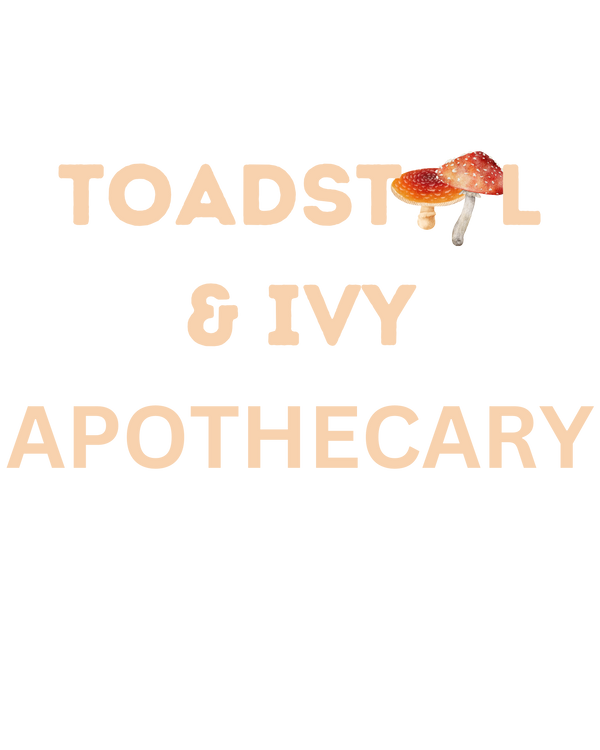
The Power of Nature: Exploring the Healing Benefits of Herbs
Share
For centuries, humans have turned to the bounties of nature to find remedies for various ailments and promote overall well-being. Herbs, with their incredible healing properties, have played a central role in traditional medicine systems worldwide. In this blog post, we will delve into the world of healing herbs, exploring their diverse benefits, historical significance, and practical applications in supporting our physical, mental, and emotional health.
1. Herbal Medicine: A Rich History:
Herbal medicine has a rich history that spans cultures and continents. Ancient civilizations, including the Egyptians, Greeks, Chinese, and Ayurvedic practitioners, recognized the therapeutic potential of herbs and incorporated them into their healing practices. The accumulated knowledge passed down through generations forms the foundation of herbal medicine today.
2. Prominent Healing Herbs and Their Benefits:
a) Lavender: Known for its calming properties, lavender aids in relaxation, promotes better sleep, and helps alleviate anxiety and stress. It can be used in the form of essential oil, tea, or as an ingredient in skincare products.
b) Chamomile: Chamomile is renowned for its soothing effects, making it an excellent remedy for digestive issues, insomnia, and menstrual discomfort. It can be consumed as a tea or used topically for its anti-inflammatory properties.
c) Echinacea: Echinacea is believed to support the immune system and help prevent and reduce the severity of common colds and respiratory infections. It is commonly consumed as a tea or taken in supplement form.
d) Turmeric: With its potent anti-inflammatory and antioxidant properties, turmeric has gained popularity for its role in supporting joint health, digestion, and overall wellness. It can be used in cooking, consumed as a supplement, or applied topically as a paste.
e) Peppermint: Peppermint is known for its cooling and soothing properties. It aids in digestion, relieves headaches, and offers relief from nasal congestion. Peppermint tea, essential oil, or topical ointments are popular ways to enjoy its benefits.
3. Herbal Infusions and Teas:
Herbal infusions and teas are convenient and enjoyable ways to incorporate healing herbs into our daily routines. By steeping herbs in hot water, we extract their beneficial compounds and create flavorful, therapeutic beverages. Experiment with various combinations and create custom blends to suit your preferences and health needs.
4. Herbal Skincare and Beauty:
Herbs offer a natural and gentle approach to skincare and beauty. Many herbs possess antibacterial, anti-inflammatory, and antioxidant properties that can improve the health and appearance of our skin. Calendula, rosemary, aloe vera, and witch hazel are just a few examples of herbs commonly used in skincare products.
5. Herbal Supplements:
In addition to incorporating herbs into our diet and skincare routines, herbal supplements provide a convenient way to experience their healing benefits. Whether in the form of capsules, tinctures, or powders, herbal supplements can support various aspects of our well-being, from immune health to stress management.
6. Precautions and Consultation:
While herbs are generally safe, it's essential to exercise caution and seek professional advice, especially if you have existing health conditions, are pregnant or breastfeeding, or are taking medications. Consulting with a qualified herbalist, naturopath, or healthcare provider can help ensure the appropriate use of herbs for your specific needs.
Conclusion:
Herbs are nature's gifts, offering a treasure trove of healing properties for our physical, mental, and emotional well-being. From ancient civilizations to modern times, their therapeutic benefits continue to inspire and nurture us. By incorporating healing herbs into our lives, we tap into the power of nature, promoting a holistic approach to health and embracing
the wisdom of traditional medicine. Remember to explore, experiment, and consult with experts to harness the full potential of healing herbs on your journey towards wellness.
1. Herbal Medicine: A Rich History:
Herbal medicine has a rich history that spans cultures and continents. Ancient civilizations, including the Egyptians, Greeks, Chinese, and Ayurvedic practitioners, recognized the therapeutic potential of herbs and incorporated them into their healing practices. The accumulated knowledge passed down through generations forms the foundation of herbal medicine today.
2. Prominent Healing Herbs and Their Benefits:
a) Lavender: Known for its calming properties, lavender aids in relaxation, promotes better sleep, and helps alleviate anxiety and stress. It can be used in the form of essential oil, tea, or as an ingredient in skincare products.
b) Chamomile: Chamomile is renowned for its soothing effects, making it an excellent remedy for digestive issues, insomnia, and menstrual discomfort. It can be consumed as a tea or used topically for its anti-inflammatory properties.
c) Echinacea: Echinacea is believed to support the immune system and help prevent and reduce the severity of common colds and respiratory infections. It is commonly consumed as a tea or taken in supplement form.
d) Turmeric: With its potent anti-inflammatory and antioxidant properties, turmeric has gained popularity for its role in supporting joint health, digestion, and overall wellness. It can be used in cooking, consumed as a supplement, or applied topically as a paste.
e) Peppermint: Peppermint is known for its cooling and soothing properties. It aids in digestion, relieves headaches, and offers relief from nasal congestion. Peppermint tea, essential oil, or topical ointments are popular ways to enjoy its benefits.
3. Herbal Infusions and Teas:
Herbal infusions and teas are convenient and enjoyable ways to incorporate healing herbs into our daily routines. By steeping herbs in hot water, we extract their beneficial compounds and create flavorful, therapeutic beverages. Experiment with various combinations and create custom blends to suit your preferences and health needs.
4. Herbal Skincare and Beauty:
Herbs offer a natural and gentle approach to skincare and beauty. Many herbs possess antibacterial, anti-inflammatory, and antioxidant properties that can improve the health and appearance of our skin. Calendula, rosemary, aloe vera, and witch hazel are just a few examples of herbs commonly used in skincare products.
5. Herbal Supplements:
In addition to incorporating herbs into our diet and skincare routines, herbal supplements provide a convenient way to experience their healing benefits. Whether in the form of capsules, tinctures, or powders, herbal supplements can support various aspects of our well-being, from immune health to stress management.
6. Precautions and Consultation:
While herbs are generally safe, it's essential to exercise caution and seek professional advice, especially if you have existing health conditions, are pregnant or breastfeeding, or are taking medications. Consulting with a qualified herbalist, naturopath, or healthcare provider can help ensure the appropriate use of herbs for your specific needs.
Conclusion:
Herbs are nature's gifts, offering a treasure trove of healing properties for our physical, mental, and emotional well-being. From ancient civilizations to modern times, their therapeutic benefits continue to inspire and nurture us. By incorporating healing herbs into our lives, we tap into the power of nature, promoting a holistic approach to health and embracing
the wisdom of traditional medicine. Remember to explore, experiment, and consult with experts to harness the full potential of healing herbs on your journey towards wellness.
